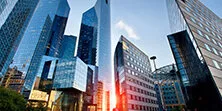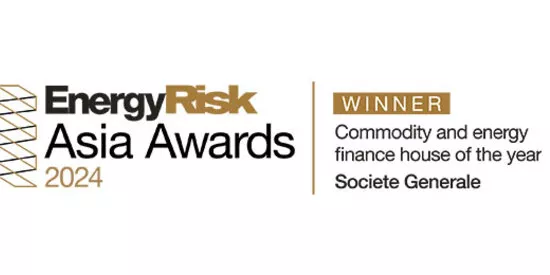
Asia is catching up on ESG investing, yet presenting promising opportunities.
ESG (Environmental, Social and Governance) investment in Asia Pacific is often assumed to be in its infancy, but market participants are confident that momentum is growing and that the region possesses the will and the means to progress rapidly – and perhaps even to surpass other regions’ ESG progress.
Today, sustainable investment assets have become a significant asset class, representing one third of the total managed assets by global asset managers. According to Bruno Neukirch, Head of Fund and ESG solutions for Global Markets, Societe Generale Asia Pacific, three main approaches to sustainable investing have been increasingly adopted in the region - negative screening (exclusion), positive integration and impact/thematic investing. Banks, asset managers and index providers have been actively responding to these emerging trends in the region by including ESG solutions with Asia underlying their product suite.
During a panel discussion at Societe Generale’s European ESG-SRI & SPIF Virtual Conference that took place in November 2020, Bruno spoke with the ESG experts in some of the largest asset managers in the world – BlackRock, Amundi and LGT, to understand the current status of sustainable investing in Asia Pacific.
The panel addressed 4 key major topics including the key drivers for ESG pickup, use of data in facilitating adoption, opportunities for market participants and how Asia Pacific could become a big contributor to sustainable investing.
Drivers of change
A range of factors are driving the rapid uptake of investments conforming to ESG principles in the region.
“There are four main drivers in APAC,” said En Lee, Head of Sustainable and Impact Investments in Asia at LGT. “Demand drivers, as more investors seek sustainable assets; risk drivers, since ESG-dominated risks materially impact all investments; return drivers, as ESG investments outperform and prove more resilient in challenging times; and regulatory drivers which are gaining momentum in Asia and have historically played a strong role in Europe.”
Show me the data
Sourcing reliable data has been a barrier to entry into ESG investing, but the asset management industry has become highly focused on data quality.
“We are agnostic about data providers: it depends on the product and asset class. What’s important is transparency about how to evaluate products,” said Sunita Subramoniam, Head of Sustainable for the ETF and Index Business at Blackrock.
For private impact investments, there are additional reporting requirements, Lee from LGT pointed out. “Investors want to be sure that their investments generate positive and measurable societal outcomes, so some subjectivity is required – but industry convergence on metrics is happening.”
Vast opportunities
Looking ahead, investors will be looking for opportunities to channel funding into products linked to climate change. According to Subramoniam, “The topic has risen to the top of the global agenda, prompting investors to factor the impact of climate change into their decisions. More than USD 40 billion went into sustainable index products this year and the trend is expected to continue.”
Both active and passive strategies offer opportunities, stated Eric Bramoullé, Chief Executive Officer South Asia at Amundi. “There is an a la carte menu of solutions that are tailored to meet the 17 Sustainable Development Goals set by the United Nations.” He pointed out that in Asia, impact investments like green bond appeal to local investors, while infrastructure projects in ASEAN and China are also gaining tractions.
LGT’s Lee sees compelling opportunities in various sectors including renewable energy, electric mobility, healthcare, and financial inclusion. “For example, the ‘missing middle’ – companies too big for microloans but too small for bank finance – are the engines of most emerging economies. Underwriting loans to them combines positive social impact with a good investment return.”
Asia Pacific is catching up yet promising
Drawing on experience from Europe and the U.S. is useful but building ESG products and services in Asia requires more tailoring for the region.
“Impact and ESG need to be contextualised and localised to Asian conditions,” said LGT’s Lee. “The unique intersection of wealth accumulation and opportunities in Asia presents strong potential for sustainable investments but impact and ESG metrics need to reflect the cultural, political, economic and societal differences.”
Generational changes also favour Asia. “Environmental awareness and responsibility will be facilitated in Asia where millennials’ working on environmental causes are raising awareness in the investing community,” observed Amundi’s Bramoullé.”
From a product issuer perspective, providing ESG solution must be client-driven. SG’s Neukirch shared that Societe Generale has been leveraging its leadership in manufacturing structured products in Europe to adapt to the growing needs for ESG solutions in Asia Pacific. He highlighted that the Bank had recently supported DBS’ launch of ESG-themed structured products1 and also issued charity notes2 for the first time in the region, adding that the appetites for these products would continue to grow.
ESG investing is no longer a backwater in Asia Pacific: a combination of investor awareness and attractive opportunities are being catalysed rapidly by improving information and product design. All the conditions are in place for ESG’s rapid adoption as a mainstream investment approach across asset classes and markets throughout the region.
__________________
1 Business Times, 19 Oct 2020 (https://www.businesstimes.com.sg/banking-finance/dbs-launches-new-tranche-of-structured-product-with-esg-theme)
2 Charity notes are structured products on which Societe Generale undertakes to make donations up to a certain percentage of the amount subscribed in the products.

日本のエネルギー・トランジションに向けて「東」と「西」を結ぶ
昨年ソシエテ・ジェネラルがグローバルロードショーの一環として開催した「ポジティブ・インパクト・デー」の東京会場では、日本の脱炭素化政策と国際的なパートナーとしての役割について、最新の動向を踏まえた活発な議論がなされました。

2024年第4四半期および2024年通期決算
パリ、2025年2月6日





